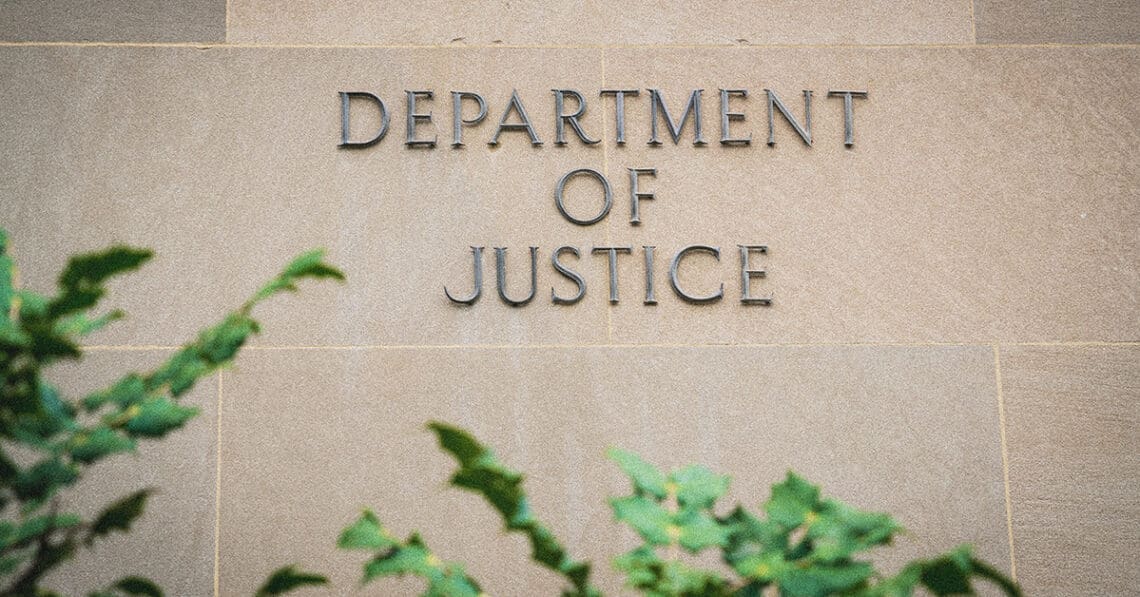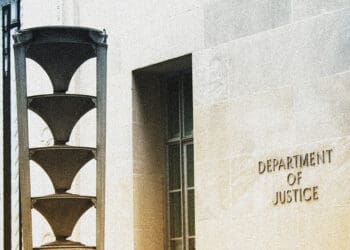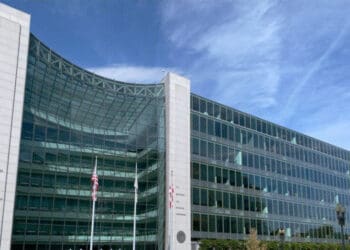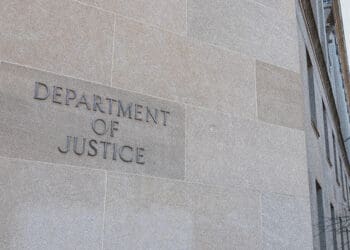From the DOJ’s dismissal of its FCPA case against a pair of tech executives to its recent announcements that some other FCPA cases will continue to state enforcers reminding everyone they can issue charges, too, the past several months have been a challenge for professionals trying to mitigate risk amid the DOJ’s pause on FCPA enforcement. But now is not the time to back down from smart and effective compliance practices regardless of whether they originated out of concerns over potential FCPA violations; in fact, it may be wise to double down, experts told CCI contributing reporter Esther D’Amico.
Even if compliance officers already have sound practices and procedures in place to avoid risk, they “should be worried about how people are interpreting [the DOJ’s FCPA enforcement pause],” said Frank Orlowski, a managing director at Alvarez & Marsal, whose experience includes implementation of FCPA controls remediation and certification programs.
Crystal Jezierski, senior managing director at consultancy Guidepost Solutions and a former compliance executive with government and private sector experience, agreed. They should be worried about employees “letting their foot off the gas” and not paying as close attention to compliance as they used to, she said.
“My fear would be that people hear [about the pause] and just decide they don’t have to follow policies that are in place or that the policies in place no longer apply somehow,” Jezierski said.
Compliance professionals need to make sure that all of their sales, marketing and business development teams understand that the pause does not mean that business practices are changing and that it certainly does not mean that it is now OK to start taking bribes, the experts said. And, as ever, training and communications are critical to ensuring that every person in the company knows what is expected of them, Jezierski said.
That’s especially true now that it’s clear huge changes to major aspects of corporate criminal enforcement can happen quickly. In short, everyone needs to be on the same page about this and, while that may seem obvious, it bears repeating in discussions about the pause, Jezierski said.
Lots of questions
In February, President Donald Trump issued an executive order initiating the 180-day pause of the FCPA, the 1977 law that bans people and companies from bribing foreign officials to gain or retain business. He directed Attorney General Pam Bondi to review FCPA investigations and enforcement actions, ceasing the initiation of new ones during the pause.
The DOJ has not issued any interim guidance about the pause, and many in the compliance field are wondering whether it will become permanent after six months, said a compliance executive who did not wish to be identified for this article.
While the agency has made no official announcement on the matter, some attendees at the American Bar Association’s white collar crime conference in Miami last month expected DOJ officials, who were scheduled to sit on panels, to provide some insight, the compliance executive said. But at the last minute, those officials canceled their plans to attend, leaving their sudden withdrawal open to interpretation, the executive said.
The SEC, which also has anti-bribery enforcement authority in FCPA matters but was not mentioned in Trump’s executive order, sent officials to the conference; the commission has not issued a formal statement on whether it also plans to pause enforcement. However, at the Miami conference, in response to a question about whether the SEC intends to do so, an agency official said it was “too early to tell” but that it aimed to follow the DOJ’s lead, according to a recent article by Arnold & Porter attorneys, an impression that was also confirmed by conference attendees who did not wish to be identified for this article.
That unofficial announcement raised further questions about what enforcement will look like going forward. This was soon followed by news this month that the SEC’s lead anti-bribery officials — Charles Cain, FCPA chief, and Tracy Price, FCPA deputy chief — have left the agency.
Those developments along with other recent federal and state actions have further fanned the flames of speculation about what to expect during and, perhaps, even after the pause. These actions include a federal judge’s decision earlier this month to grant the DOJ’s request to dismiss its foreign bribery case against two former Cognizant Technology Solutions executives, a move that the same judge rejected last month. In an April 1 letter to the judge, the DOJ cited “the recent assessment of the executive order application to this matter.” However, the DOJ has also said it plans to move forward with at least two other FCPA cases against US executives accused of bribing officials in Egypt and Honduras, saying it had completed a review of the actions in keeping with Trump’s executive order.
Earlier this month, California AG Rob Bonta issued a warning to businesses in his state that bribes to foreign government officials to obtain or retain business are illegal. Noting the executive order, Bonta said in a statement that his office will prosecute violators under California’s Unfair Competition Law. Observers have said other state AGs will follow suit, including in areas of securities law.
Holding the Line on Compliance During the FCPA Enforcement Pause
Why DOJ’s 180-day interlude presents an opportunity to strengthen anti-corruption foundation
Read moreDetailsBeyond staying the course
At a time when it is hard to keep up with such fast-moving developments in and out of Washington, corporate compliance officers generally know that businesses must “stay the course,” said Ann Marie Wick, managing director at FTI Consulting. But beyond that, they should be doubling down on their compliance programs and making sure the programs still work for their organizations, said Wick, whose experience includes designing and implementing global compliance programs.
That means that compliance officers must work within their organizations to manage any course-corrections the company is planning, she said. This could be, for example, a switch from doing business in one country to another, or expansion into a new geography or business line in response to the US tariffs, Wick said.
Because not all compliance officers are well-connected with the business operations in their organizations, they should start having regular communications and meetings with their sales and procurement teams to make sure they are aware of any changes planned, she said. They need to continually monitor where the risk is and address it appropriately, including making sure that due diligence is done based on available information on any third parties, she added.
Whistleblower hotlines should not be neglected and officers need to make sure they are addressing concerns from both employees and third parties, Wick said, as constantly monitoring and investigating information from hotlines is important.
A compliance Venn diagram
It is also important to acknowledge that this is a time of stress, “when people are losing their jobs, the stock market has declined, there’s an overall challenging environment related to trade and where I can sell my products,” Wick said. “At times of stress, people make stupid decisions.”
Companies need to be prepared for that and review where fraud — whether related to FCPA bribery and corruption or not — could occur in their organizations, Wick said. This can include theft, faulty expense reporting, misappropriation of assets or misstating financial statements so that the financials look stronger than they are, she said.
“These are outside of FCPA, but they’re still real risks to an organization, particularly when you’re in an economy that may be declining,” she said.
Jezierski echoed that sentiment. Compliance officers need to be sure they know where their organization’s money is going and know how they are keeping track of it, she said. Besides FCPA compliance, there are other reasons to have accurate books and records and effective vendor management.
A company’s financial program — including procurement, accounts payable and purchase orders — is part of the controls that undergird its compliance program, Jezierski said.
“It’s a combination of vendor management, how you go about identifying when you need to engage a third party, [and] what is your process around making payments outside of the company,” she said. Along with that, she added, is also knowing who the customer is.
There are good practices that have evolved as part of FCPA but that are not required as part of compliance with that law, Jezierski said.
“There’s nothing in the FCPA that requires a company to do due diligence on third parties, for example, but this is a practice that has developed as part of FCPA compliance programs,” she said, adding that one of the challenges with the FCPA is that it leaves “a lot of room for interpretation.”




 Esther D’Amico, a Washington, D.C.-based politics and policy reporter who specializes in antitrust, EH&S and other regulatory concerns, is a contributing writer for Corporate Compliance Insights. She’s also been published in Forbes, Kiplinger and Mergermarket.
Esther D’Amico, a Washington, D.C.-based politics and policy reporter who specializes in antitrust, EH&S and other regulatory concerns, is a contributing writer for Corporate Compliance Insights. She’s also been published in Forbes, Kiplinger and Mergermarket. 








